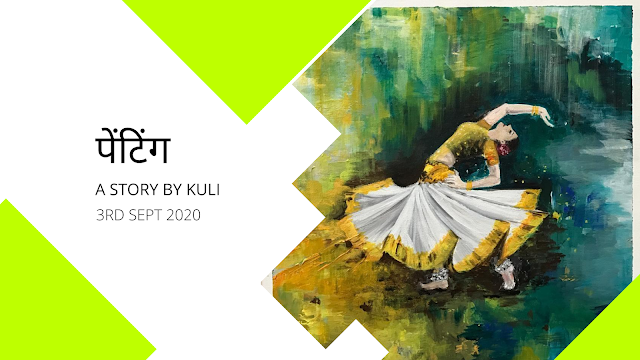Shaam (Evening)
मोहब्बत मैं नहीं है फर्क जीने और मरने का
उसीको देख कर जीते है के जिस काफिर पे दम निकलें
(What can I say what
is life and what is death and if there is any difference. For am I alive coz I am
dying in love of my tormentor who doesn't believe in love)
You see that is what
my problem is these days. Each time I get down to write a piece I end up
putting someone else’s thought and I realize I can never sound so profound or
do justice to the subject like they did. And I can’t write anything original these
days. But was I ever original?
Sometimes the
realization that my thoughts are mere dust of somebody else’s ember is also
comforting because that somebody is definitely far better than me. I
shamelessly keep borrowing these days and I keep writing in order to search myself
in my own written words. I reckon it is a long road ahead but I am in no hurry.
Thus once again I have written something that is so much the Gulzar genre and I
know it is a blasphemy to think I can emulate Gulzar sahib but his is an influence i can't easily shrug off and this nazm and its recitation is
my offering to him (above youtube video).
Kanupriya Singh writes - “You know which part
of the day is most beautiful? Evenings are beautiful. Probably the second most
beautiful part of the day for someone in love; other than dead at night, when
the silence underscores every act of intimacy and magnifies it tenfold. But the
same evening can also be a time of suffering. If you have ever been in love and
spent an evening waiting futilely for that someone, you'll know the pain it
brings. Not a stabbing pain either, just a dull ache accompanied by a feeling
of being deserted. Now imagine this happening to you day after day."
This is what i have
taken as a backdrop to this nazm. And here it is -
ज़िन्दगी तो फिरभी गुज़र जाएगी,
इन तनहा शामो का क्या करू?
लूटी लुटाई बेवासी आके उतर
जाति है मेरे इंक पॉट मैं हर रोज़।
लिखे हुए सारें अलफ़ाज़ फिर बेमानी लगतें है।
सुनो तुम एक काम करना,
कल शाम ओढ़े तुम आजाना।
मैं कुछ नज़्में तुम्हारें आँखों के सुरमें से लिख दूंगा।
फिर शायद उन शब्दों के मानी मिल जायें।
Illustration (in third
person. Cause this is how I was taught in school J ) :
The poet say that he
doesn't care for how his life will pass without his beloved lover and he knows
that he will somehow scrape through life; but what should he do about these
lonely evenings that come surreptitiously like a defiled widow (बेवा) and trickles down his pot of ink.
So the actual words
are
ज़िन्दगी तो फिरभी गुज़र जाएगी,
इन तनहा शामो का क्या करू?
लूटी लुटाई बेवासी आके उतर
जाति है मेरे इंक पॉट मैं हर रोज़
At such
time during the day when all that the evening brings is a gloomy darkness he
tries to write but all the words (अलफ़ाज़) look meaningless (बेमानी)
लिखे हुए सारें अलफ़ाज़ फिर बेमानी लगतें है
The poet wants his
lover to cloak (ओढ़े) herself with one such evening and come to
meet him
सुनो तुम एक काम करना
कल शाम ओढ़े तुम आजाना
When on
one such evening she is there with him he will try writing some poems (नज़्में) from the khol / kajal (सुरमें) of her eyes
फिर मैं कुछ नज़्में तुम्हारें आँखों के सुरमें से लिख दूंगा
May then those written
words will find their meaning (माने)
फिर शायद उन शब्दों के माने मिल जायें










Comments
Post a Comment